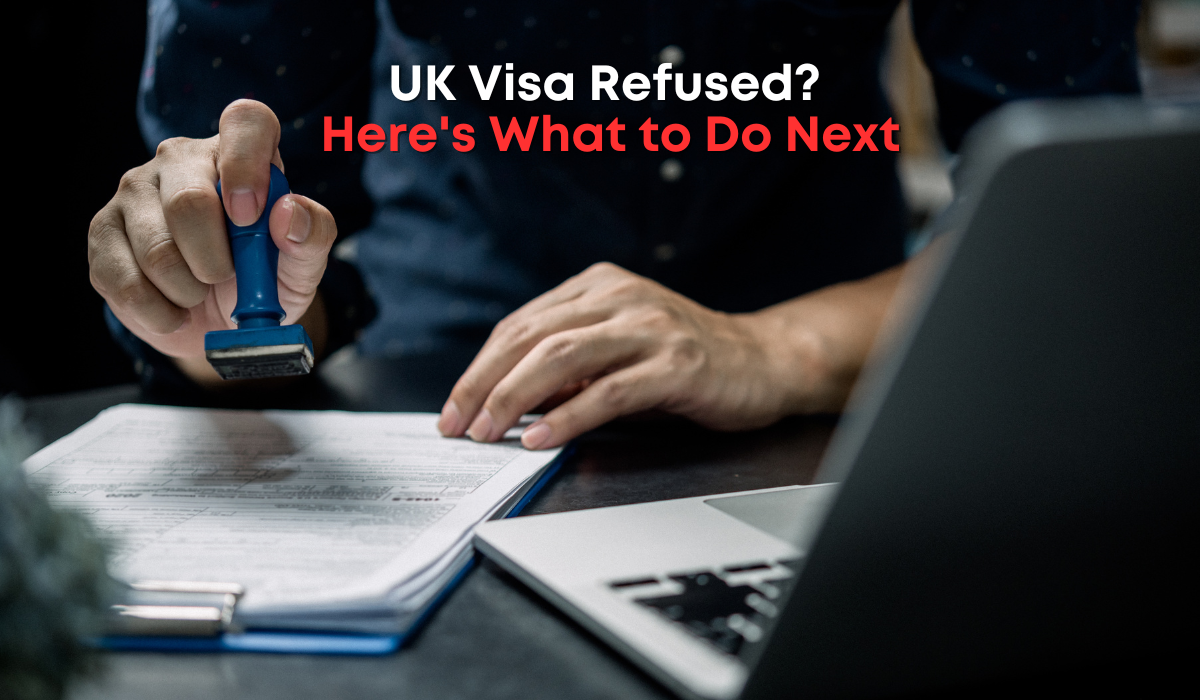A UK visa refusal can be a deeply unsettling experience, especially when the decision disrupts your plans to work, study, or reunite with loved ones. According to the UK Home Office, nearly 15% of visa applications are refused annually, with over 247,000 refusals reported in 2021. While these numbers may be daunting, the good news is that approximately half of all appeals lodged against immigration refusals are successful. With the right guidance and preparation, you may still secure your UK visa.
In this article, we explore why visa refusals happen, what options are available to you after receiving a refusal, and how to navigate the appeal process effectively.
Understanding the Reasons for UK Visa Refusals
UK visas are typically assessed based on suitability, validity, and eligibility under immigration rules. A refusal may occur for several reasons, including:
- Failing to meet financial requirements (e.g., minimum income or savings thresholds).
- Scoring insufficient points under the UK Points-Based System (PBS).
- Providing inaccurate information or false documents.
- Not responding to Home Office requests for additional information.
- Criminal convictions or perceived threats to national security.
- Previous breaches of immigration rules (e.g., overstaying).
- UK entry bans or sham relationships.
- Issues with NHS debt or rough sleeping.
For instance, a common reason for refusal involves discrepancies between income figures provided by an applicant and those held by HMRC. Such errors can lead to suspicion of fraud, even if the mistake was unintentional.
Next Steps After a Visa Refusal
When your visa is refused, the Home Office will issue a letter detailing the reasons for the refusal and whether you have the right to appeal, request an Administrative Review, or seek a Judicial Review. Here’s what you need to know:
- Check Your Right to Appeal
The decision letter will clarify your rights. Broadly, applicants may have the option to:
- Request an Administrative Review (AR): If the refusal was due to a Home Office error, you can ask for your case to be reviewed.
- File an Appeal: Reserved for cases involving human rights breaches, asylum claims, or EU Settlement Scheme decisions.
- Apply for Judicial Review: If the decision reflects an incorrect interpretation of the law.
Visitor and short-term student visa applicants often lack appeal rights, but reapplying with stronger documentation may be an option.
How to Appeal a Visa Refusal
If your circumstances grant you the right to appeal, follow these key steps:
- Engage an Immigration Solicitor
While it is not mandatory, having an experienced solicitor can significantly improve your chances of success. They can identify the best grounds for appeal, ensure robust preparation, and represent you during Tribunal hearings.
- Understand the Timelines
- If appealing from inside the UK, you typically have 14 days from the decision date.
- If appealing from outside the UK, you have 28 days.
- Build a Strong Case
Work with your solicitor to gather evidence and draft a persuasive case. Highlight errors in the Home Office’s decision, provide updated or corrected documents, and argue any human rights implications.
- Submit Your Appeal
Appeals must be lodged online through the designated application system. As part of the process, you can request either:
- An oral hearing, where you explain your case in person, or
- A paper-based decision, where the Tribunal decides based solely on your submitted evidence.
- Await the Tribunal’s Decision
Once submitted, the appeal will first be reviewed by an Entry Clearance Manager (ECM). If unresolved, it will proceed to a hearing at the First-tier Tribunal (Immigration and Asylum Chamber).
What Happens After an Appeal?
If Your Appeal Is Successful
A positive decision from the Tribunal usually results in the Home Office reversing its refusal and issuing your visa. The timeline for receiving a visa post-appeal can vary but typically takes 6–12 months.
If Your Appeal Is Unsuccessful
Unsuccessful appellants may have further options, including:
- Filing an appeal to the Upper Tribunal if there was a legal error.
- Submitting a fresh application, particularly if the refusal stemmed from a mistake in your original submission.
- Exploring alternative visa routes, such as switching to a different category.
Reflecting on the Process: A Path to Better Outcomes
Immigration refusals can be emotionally and financially draining, but they also offer an opportunity to reflect on the application process. Many refusals result from poor preparation, incomplete documentation, or misinterpretation of the rules. Addressing these issues proactively with professional support can transform a rejection into a success.
Consider the following steps to improve your chances:
- Seek Professional Guidance Early: An immigration solicitor can help you avoid common pitfalls, prepare compelling applications, and ensure compliance with regulations.
- Provide Clear, Consistent Information: Double-check your documents for accuracy, especially financial and employment records.
- Stay Informed About Immigration Rules: UK visa requirements are complex and frequently updated. Staying informed is essential to avoid unnecessary errors.
Final Thoughts
While a UK visa refusal can feel like the end of the road, it is often just the beginning of a new opportunity to strengthen your case. With nearly half of all appeals succeeding, the odds are in your favor if you approach the process strategically and seek expert guidance. Whether appealing, reapplying, or exploring alternative visa options, the key lies in preparation, persistence, and professionalism.
Get in touch: For a comprehensive understanding of your options or queries on UK immigration matters, contact GigaLegal Solicitors at 02074067654 or click here to book a no-obligation consultation with an immigration expert.


